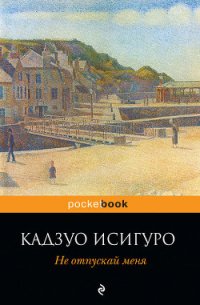Остаток дня / The Remains of the Day - Исигуро Кадзуо (хороший книги онлайн бесплатно .TXT) 📗
‘You are perpetually talking of my “great inexperience,” Mr Stevens, and yet you appear quite unable to point out any defect in my work. Otherwise I have no doubt you would have done so long ago and at some length. Now, I have much to be getting on with and would appreciate your not following me about and interrupting me like this. If you have so much time to spare, I suggest it might be more profitably spent taking some fresh air.’
She stamped past me and on down the corridor. Deciding it best to let the matter go no further, I continued on my way. I had almost reached the kitchen doorway when I heard the furious sounds of her footsteps coming back towards me again.
‘In fact, Mr Stevens,’ she called, ‘I would ask you from now on not to speak to me directly at all.’
‘Miss Kenton, whatever are you talking about?’
‘If it is necessary to convey a message, I would ask you to do so through a messenger. Or else you may like to write a note and have it sent to me. Our working relationship, I am sure, would be made a great deal easier.’
‘Miss Kenton…’
‘I am extremely busy, Mr Stevens. A written note if the message is at all complicated. Otherwise you may like to speak to Martha or Dorothy, or any members of the male staff you deem sufficiently trustworthy. Now I must return to my work and leave you to your wanderings.’
Irritating as Miss Kenton’s behaviour was, I could not afford to give it much thought, for by then the first of the guests had arrived. The representatives from abroad were not expected for a further two or three days, but the three gentlemen referred to by his lordship as his ‘home team’ – two Foreign Office ministers attending very much Off the record’ and Sir David Cardinal – had come early to prepare the ground as thoroughly as possible. As ever, little was done to conceal anything from me as I went in and out of the various rooms in which these gentlemen sat deep in discussion, and I thus could not avoid gaining a certain impression of the general mood at this stage of the proceedings. Of course, his lordship and his colleagues were concerned to brief each other as accurately as possible on each one of the expected participants; but overwhelmingly, their concerns centred on a single figure – that of M. Dupont, the French gentleman – and on his likely sympathies and antipathies. Indeed, at one point, I believe I came into the smoking room and heard one of the gentlemen saying:
‘The fate of Europe could actually hang on our ability to bring Dupont round on this point.’
It was in the midst of these preliminary discussions that his lordship entrusted me with a mission sufficiently unusual for it to have remained in my memory to this day, alongside those other more obviously unforgettable occurrences that were to take place during that remarkable week. Lord Darlington called me into his study, and I could see at once that he was in a state of some agitation. He seated himself at his desk and, as usual, resorted to holding open a book – this time it was Who’s Who – turning a page to and fro.
‘Oh, Stevens,’ he began with a false air of nonchalance, but then seemed at a loss how to continue.
I remained standing there ready to relieve his discomfort at the first opportunity. His lordship went on fingering his page for a moment, leaned forward to scrutinize an entry, then said:
‘Stevens, I realize this is a somewhat irregular thing to ask you to do.’
‘Sir?’
‘It’s just that one has so much of importance on one’s mind just now.’
‘I would be very glad to be of assistance, sir.’
‘I’m sorry to bring up a thing like this, Stevens. I know you must be awfully busy yourself. But I can’t see how on earth to make it go away.’
I waited a moment while Lord Darlington returned his attention to Who’s Who. Then he said, without looking up:
‘You are familiar, I take it, with the facts of life.’
‘Sir?’
The facts of life, Stevens. Birds, bees. You are familiar, aren’t you?’
‘I’m afraid I don’t quite follow you, sir.’
‘Let me put my cards on the table, Stevens. Sir David is a very old friend. And he’s been invaluable in organizing the present conference. Without him, I dare say, we’d not have secured M. Dupont’s agreement to come.’
‘Indeed, sir.’
‘However, Stevens, Sir David has his funny side. You may have noticed it yourself. He’s brought his son, Reginald, with him. To act as secretary. The point is, he’s engaged to be married. Young Reginald, I mean.’
‘Yes, sir.’
‘Sir David has been attempting to tell his son the facts of life for the last five years. The young man is now twenty-three.’
‘Indeed, sir.’
‘I’ll get to the point, Stevens. I happen to be the young man’s godfather. Accordingly, Sir David has requested that I convey to young Reginald the facts of life.’
‘Indeed, sir.’
‘Sir David himself finds the task rather daunting and suspects he will not accomplish it before Reginald’s wedding day.’
‘Indeed, sir.’
‘The point is, Stevens, I’m terribly busy. Sir David should know that, but he’s asked me none the less.’
His lordship paused and went on studying his page.
‘Do I understand, sir,’ I said, ‘that you wish me to convey the information to the young gentleman?’
‘If you don’t mind, Stevens. Be an awful lot off my mind. Sir David continues to ask me every couple of hours if I’ve done it yet.’
‘I see, sir. It must be most trying under the present pressures.’
‘Of course, this is far beyond the call of duty, Stevens.’
‘I will do my best, sir. I may, however, have difficulty finding the appropriate moment to convey such information.’
‘I’d be very grateful if you’d even try, Stevens. Awfully decent of you. Look here, there’s no need to make a song and dance of it. Just convey the basic facts and be done with it. Simple approach is the best, that’s my advice, Stevens.’
‘Yes, sir. I shall do my best.’
‘Jolly grateful to you, Stevens. Let me know how you get on.’
I was, as you might imagine, a little taken aback by this request and ordinarily the matter might have been one I would have spent some time pondering. Coming upon me as it did, however, in the midst of such a busy period, I could not afford to let it preoccupy me unduly, and I thus decided I should resolve it at the earliest opportunity. As I recall, then, it was only an hour or so after being first entrusted with the mission that I noticed the young Mr Cardinal alone in the library, sitting at one of the writing tables, absorbed in some documents. On studying the young gentleman closely, one could, as it were, appreciate the difficulty experienced by his lordship – and indeed, by the young gentleman’s father. My employer’s godson looked an earnest, scholarly young man, and one could see many fine qualities in his features; yet given the topic one wished to raise, one would have certainly preferred a lighter-hearted, even a more frivolous sort of young gentleman. In any case, resolved to bring the whole matter to a satisfactory conclusion as quickly as possible, I proceeded further into the library, and stopping a little way from Mr Cardinal’s writing desk, gave a cough.
‘Excuse me, sir, but I have a message to convey to you.’
‘Oh, really?’ Mr Cardinal said eagerly, looking up from his papers. ‘From Father?’
‘Yes, sir. That is, effectively.’
‘Just a minute.’
The young gentleman reached down into the attaché case at his feet and brought out a notebook and pencil.
‘Tire away, Stevens.’
I coughed again and set my voice into as impersonal a tone as I could manage.




